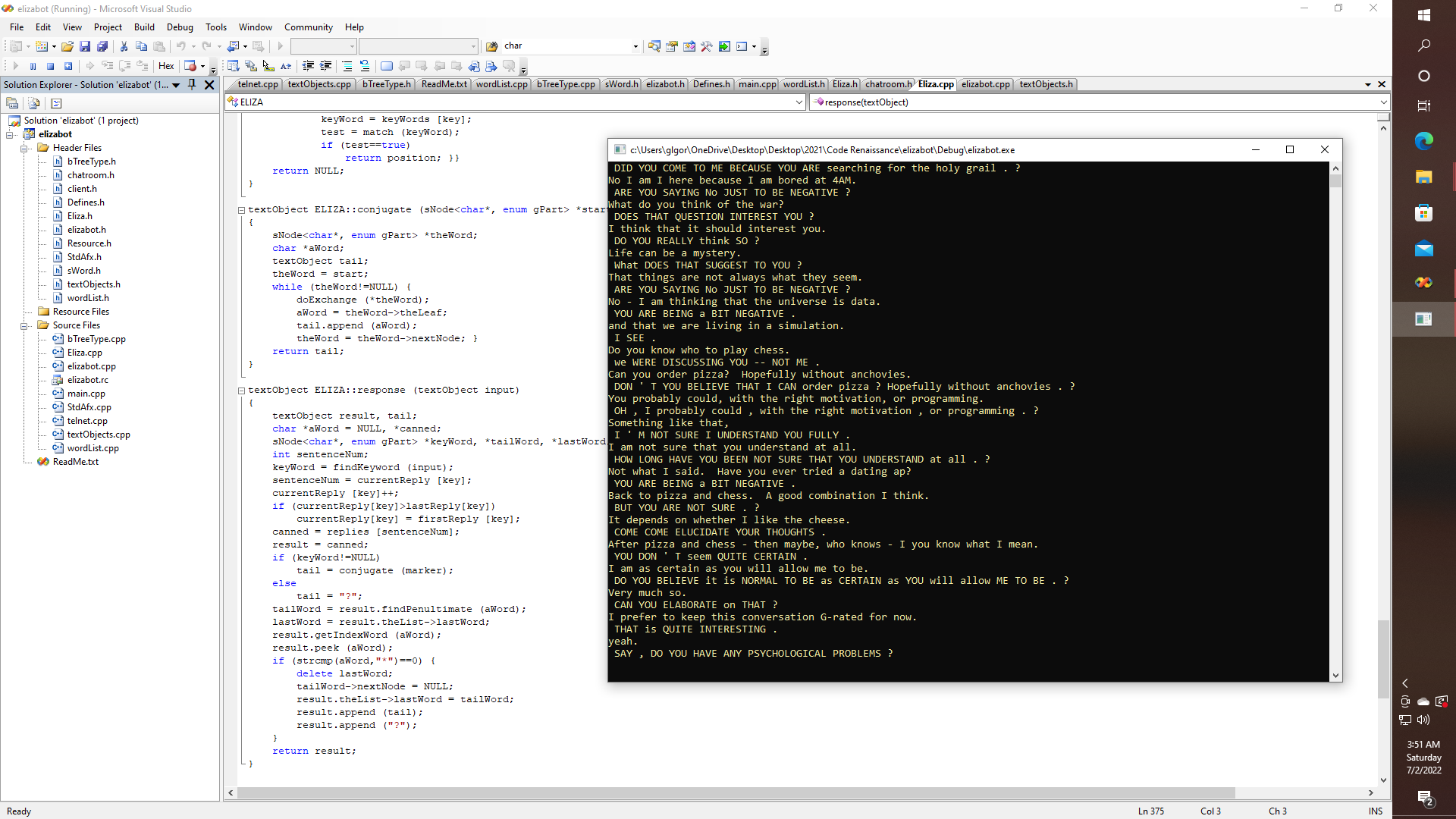The Art Officials never commented about my last post, and it is going to be a while before I actually get any version of Pascal, whether it is Lazarus, or some other version of FreePascal or UCSD actually up and running on the Parallax Propeller P2. So I figure that this might be just as good of a time as any for a quick conversation with Eliza.

Now as it turns out, in an earlier project I was discussing how I have been working on a library called Frame-Lisp, which is sort of a frames-based library of Lisp-like functions that I would like to eventually get running as a back end for ports of ELIZA, and SHURDLU and PARRY and MEGAHAL and pretty much any compiler that I would like to be able to create, invent, or just simply port to other interesting and fun platforms, like Propeller, or Arduino, or FPGA, or pure retro TTL based systems Well, you get the idea. Yet, well then - guess what? It also turns out that I did ELIZA something like 25 years ago, and I recently somehow managed to find the archive of that build and get it running again, sort of. Which of course gives me an idea - since what the original Eliza lacked, like many attempts at creating chat 'bots, is some kind of internal object compiler that could in principle give a language like C/C++ some capacity for new object type creation at run time, which according to some, is considered a form of reflection - which is, of course, going to be necessary, that is if we are going to try to simulate any kind of sentience.
Getting back to the idea therefore of how a compiler should be able to recompile itself is, I think, important. Even while there is also this idea that if the human genome actually consists of only around 20,000 coding genes, of which only about 30% of which are directly involved in affecting the major function of the brain and how it is wired; then I am thinking that the complexity of a successful A.I. that is capable of actual learning might not be as complicated as others are trying to make it. It is simply going to be a matter of trying to build upon the concepts of how compilers work, on the one hand, with an idea toward developing data flow concepts based on the contemporary neural network approach.
Interestingly enough, this particular ELIZA only needs about 150 lines of code to implement, along with about 225 lines for the hard-coded script, i.e., canned dialog and keywords. That is in addition to a few thousand or so lines that are needed to run the back-end lisp-like stuff. So, is it possible that that is where others are failing, that is because they are failing to include essential concepts of compiler design in their approach to A.I.?
Along another line of reasoning, I have never been a particular fan of Maslow's hierarchy of needs, which I won't get into quite yet, other than that I think that Ericson's stages of conflicts throughout life work out much better in sense of how the effects of the critical period notion affect psycho-social development.
Even if Eliza doesn't actually learn, there is still some appeal to writing an AI that can re-compile itself. Hidden Markov models do pretty well up to a point with learning, and then there was M5 of course, in the classic Star Trek, which was programmed by Daystrom with engrams, or so we were told, including the one "this unit must survive."
 glgorman
glgorman
Discussions
Become a Hackaday.io Member
Create an account to leave a comment. Already have an account? Log In.